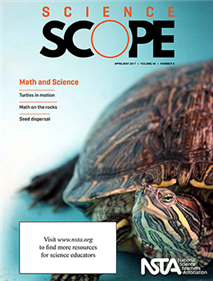All Resources
Journal Article
Beluga Whales: Hyphothesis Generation and Evaluation
Examine data collected during a four-year study to determine whether the seasons affect the behavior of beluga whales....
Journal Article
Go, Turtle, Go: Measuring Motion to Build Proficiency in Science
Have students plan an investigation that will provide evidence that the change in an object’s motion depends on sum of the forces acting on the object and its mass....



